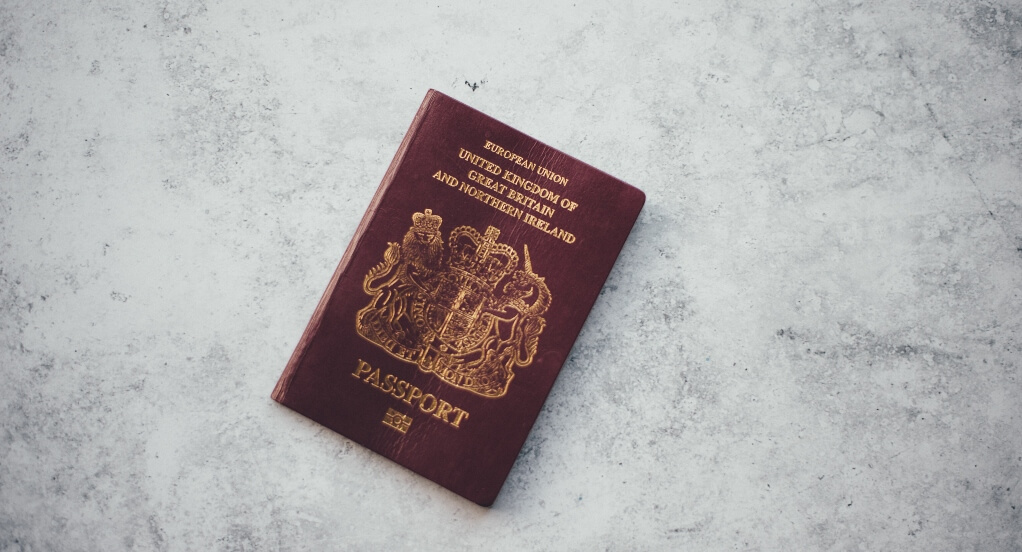Heritage bank business credit card. The limits, fees and need-to-knows
If you’re on the hunt for a suitable business credit card in Australia, there are several offerings available. A mutual or ‘customer-owned’ bank, Heritage...

If you’re interested in going into business in Australia, you’ll need the right both to live there, and to run a business there. That means getting hold of a particular type of visa.
In fact, there are several different types of Australian business visa, and you’ll need to make sure you apply for the right one. That’s why we’ve put together this guide – to talk you through the various available visas, as well as the Australian business visa requirements that go with each of them.
Each different Australian business visa is targeted at a specific group, so you should be able to ascertain which will apply in your case by checking through this overview.
This is the type of business visa that’s most likely to apply to a potential businessperson coming to Australia.
With an Australian Business Innovation and Investment visa, you can own a business and manage it too. Alternatively, you can make investments or act as an entrepreneur – depending on the particular “stream” you’ve gone for.[1]
The key streams are as follows¹:
These are all provisional (temporary) visas that let you stay in Australia for up to 4 years and 3 months. Two extension streams are available: Business Innovation Extension, which lets you stay for a total of 6 years (so, 21 months longer), and Significant Investor Extension, with which you can extend your stay for another 4 years¹.
Your first Business Innovation and Investment visa will almost certainly have to be provisional – only valid for a fixed period of time, after which you’ll have to either shut up shop or get another visa.
At first your Business Innovation and Investment visa will likely be valid for 4 years and 3 months¹, but when that time is approaching its end you have two main options.
Option 1 is applying for an extension, as mentioned above – a Business Innovation Extension or Significant Investor Extension visa will allow you to prolong your stay. But you’ll still be on a temporary visa¹.
Option 2 is going permanent, as you’ll see below.
If things have gone well while you’ve been on your provisional visa, you should be able to apply for a Permanent Business Innovation and Investment visa, which will grant you permanent residence in Australia.
The same basic streams exist as for the provisional visa – business, investor, and entrepreneur².
If all goes to plan and you’re accepted, then after a while, you might find yourself eligible for Australian citizenship³.
If you’re a more experienced businessperson looking to set up in Australia, you might be able to get a Business Talent visa, which has the advantage of giving you permanent residency straight away.
There are two streams of Business Talent visa that might apply.
If you have a high personal net value and you’re currently running a successful and sizeable business – we’ll go into the figures below – then the Significant Business History visa stream might be ideal for you⁴.
To qualify for this visa stream, you don’t just have to be a venture capitalist – you need to have got your VC funding from someone in the Australian Investment Council (formerly AVCAL). If that applies to you, this is a great route to quickfire permanent residency⁴.
The above are just the primary types of visa you’ll likely be considering if you’re looking to run an Australian business.
If you’re just looking to work in Australia, there are various other sorts of visa that might apply, such as the Skilled Independent/Nominated visas, Temporary Work visas, and so on.
There’s also the Distinguished Talent visa, if you have an exceptional record in your field. If you’re just visiting Australia but not moving there, your options include the Business Visit visa⁵.
For any sort of business visa, Australia’s requirements need to be fully met. In the next section we’ll go through what those requirements are.
How do you actually get any of those business visas, though?
In this section you’ll get an idea of whether you’ll meet the Australian Business Visa requirements for the different options.
The requirements for the Business Innovation and Investment visa differ between the streams, but here’s an overview of the criteria you’ll need to meet⁶,⁷,⁸,⁹,¹⁰,¹¹,¹².
An Australian state or territory needs to formally nominate you for this sort of visa – whichever stream you choose – via an invitation letter.
To get a nomination, you first submit an expression of interest. You can do that online via a service called SkillSelect. Then you have to wait for an invitation from a state or territory (or the CEO of Austrade). If you want, you can get in touch with them directly to ask about this¹³.
If you’re applying for one of the extension visas, you probably don’t need to be nominated again. But for the Business Innovation Extension stream, your nomination does still need to be current⁹.
As you’d expect, the criteria here vary depending on the stream. For the Significant Investor stream, for instance, you’ll need to actually make your AUD 5m investment, or be planning to – and you’ll need to invest that money in particular ways⁸.
If you’re going for the Business Innovation stream, you’ll need to have recently owned part of at least one business with a minimum of AUD 500,000 turnover; plus you’ll need to have at least AUD 800,000 in personal and business assets⁶.
For the Business Innovation and Investor streams, you’ll need at least 65 points in Australia’s famous “points-based” immigration system. You get points depending on things like your qualifications, age, English language ability, and experience in business⁶,⁷.
The other streams don’t have a specific points requirement.
Even on top of the points system, there may be other boxes you need to tick. For the Business Innovation, Entrepreneur, and Investor streams, you need to be under 55⁶,⁷,¹².
There are also health and character requirements to meet, and you’ll need to have a particular level of English, too.
Plus, there are a range of stream-specific criteria that you’ll need to check through carefully.
You’ll also have to sign a statement to confirm you’ll follow both Australian laws and the Australian way of life.
Last but not least, don’t forget that you’ll need to pay a fee. Again the fee varies by stream, ranging from AUD 5,375 to AUD 9,455. The extension streams are both AUD 645⁵.
To upgrade your provisional visa to a permanent one, essentially you’ll need to have done well during your time as an Australian business person so far.
Success looks a little different for the various streams, so let’s take each in turn.
Having been in the Business Innovation (Provisional) stream up to now, you’ll need to still own and manage up to two main Australian businesses. You’ll also need to own a certain percentage of it: at least 51% if the business turns over less than AUD 400,000, 30% if it’s above that, or 10% if it’s operated by a company that’s publicly listed.
The business will need to have turnover of at least AUD 300,000 and employ two eligible people full time (or equivalent). You’ll also need to have AUD 200,000 net assets in your main business, and AUD 600,000 personal and business assets in the country.
Plus, as for the provisional visa, you’ll need to meet criteria about your English, health, character, and so on. You’ll need to have lived in Australia for at least 1 of the past 2 years¹⁴.
The key thing with all of the three investor schemes (Investor, Significant Investor, and Premium Investor) is that you’ve delivered on what you should have done, in terms of your investment. You’ll need to have held your complying investments for long enough, and plan to continue doing business or investing in Australia.
There are also residence requirements to meet – but they vary. For the Investor stream, you’ll need to have lived in Australia for 2 out of the last 4 years at least¹⁵. If you’re a Premium investor, there’s no specific residence requirement¹⁷.
For the Significant Investor stream, you’ll need to have lived in Australia for a certain number of days, calculated according to how many years it is since your provisional visa started. Alternatively, you can qualify if your spouse or partner has been in the country for a certain (greater) number of days. You may need to get both your calendar and your calculator out.¹⁶
Don’t forget about the other criteria too, including health, English, and character. You also can’t owe any debt to the Australian government.
If you’re an entrepreneur, you’ll need to have been in Australia for at least 2 of the last 4 years, since you were granted the provisional visa.
And what’s more, you’ll need to have a record of success. You’ll be assessed, and will need to show success in areas like turnover, funding, the sale of a venture, filing a patent, and so on. Residential real estate isn’t allowed.
As with the others, you’ll also need to have decent English, be adequately healthy and of adequate character, and not owe the Australian government any money¹⁸.
If you’re going for a Business Talent visa (and not a Business Innovation and Investment one), you’ll need to pay AUD 7,855 and meet various criteria.
For the Significant Business History stream, your net value must be at least AUD 1.5m, and your business’s turnover has to have been at least AUD 3m for 2 recent fiscal years. You must also own net assets of AUD 400,000, at least, in at least one qualifying business – again for 2 recent years or more.
For the Venture Capital entrepreneur stream, an Australian venture capital firm must have granted you funding of AUD 1m or more. That firm needs to be a member of the Australian Investment Council¹⁹.
There are plenty of other criteria too – they don’t just give these away, especially because they’re permanent. Like with the other business visas, you’ll need to get a formal nomination, speak some English, meet health and character requirements, and sign an Australian values statement. For the Significant Business History stream, you’ll also need to be under 55, unless you get a special waiver.
The key part of the application process is getting an invitation/nomination. Without an invitation, you won’t be eligible. This is how that part of the process works, in brief¹³:
You’ll also need a nomination if you apply for a Business Talent visa via the Significant Business History stream.
Whatever sort of visa you go for, you’ll likely have to pay some fees. Assuming you’re not already based in Australia, that might be something of a problem – as any businessperson knows, international money transfers can get expensive pretty fast.
Wise Business can help. This free international business account lets you convert money into or out of Australian dollars at the real mid-market rate, with only low, clearly stated fees to pay. You can hold money in 40+ currencies for as long as you want, and you even get virtual bank details in five international currencies: AUD, NZD, USD, EUR, and GBP. It’s a great deal for any internationally minded businessperson.
Good luck with your Australian business visa application. It might seem a complicated process, but hey – if you have a successful record in business, it shouldn’t be any problem at all.
Sources:
All sources accurate as of 20 July 2020
*Please see terms of use and product availability for your region or visit Wise fees and pricing for the most up to date pricing and fee information.
This publication is provided for general information purposes and does not constitute legal, tax or other professional advice from Wise Payments Limited or its subsidiaries and its affiliates, and it is not intended as a substitute for obtaining advice from a financial advisor or any other professional.
We make no representations, warranties or guarantees, whether expressed or implied, that the content in the publication is accurate, complete or up to date.

If you’re on the hunt for a suitable business credit card in Australia, there are several offerings available. A mutual or ‘customer-owned’ bank, Heritage...

If you’re a business owner in Victoria seeking a low-rate business credit card solution, Bank of Melbourne (BOM) may be worth considering. Existing...

If you run a business that deals with international trade, you know the importance of finding a service provider that makes international payments and foreign...

If you’re the owner of a business or run the finances of one, you might be considering business debit cards. These cards are usually connected to the...

As a business continues to grow, sorting out its financial and banking aspects becomes important. Setting up a business account is a crucial step that can...

Whether you have your own business already, or are looking to start one, there might be a time where you may need to seek out overseas suppliers to fulfil...